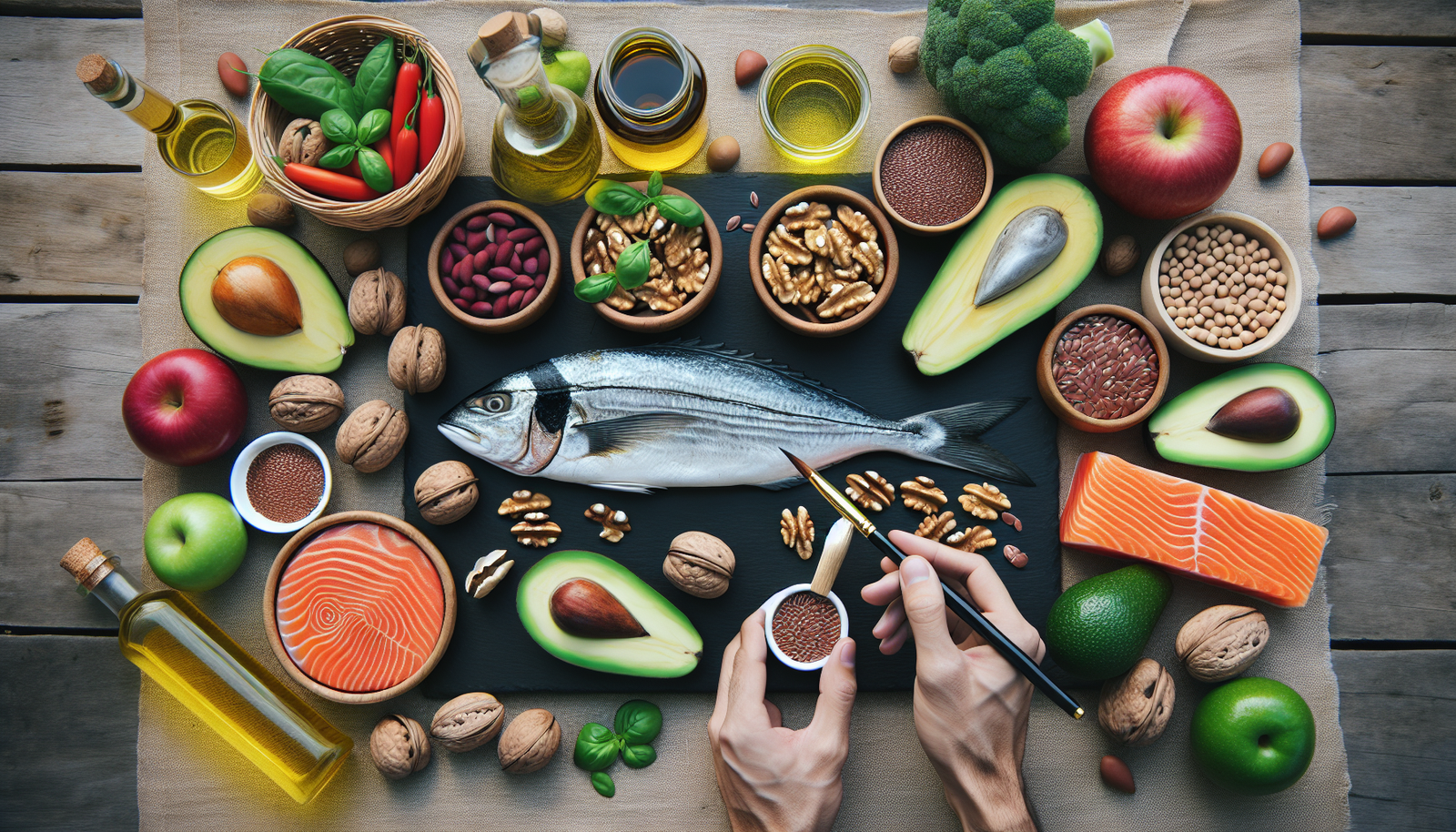The Best Food Sources of CoQ10 for Natural Supplementation
Understanding CoQ10
Coenzyme Q10 (CoQ10) is a vital compound that aids in cellular energy production and functions as a powerful antioxidant. It is present in every cell of the body and is especially significant for the health of the heart, liver, and kidneys. CoQ10 levels naturally decline with age, and various health conditions can further diminish its levels, making it crucial to ensure adequate intake through diet or supplementation.
The Role of CoQ10 in Health
CoQ10 is essential for the health of the mitochondria, often referred to as the powerhouse of the cell. It plays a key role in the production of adenosine triphosphate (ATP), the energy currency of cells. Furthermore, CoQ10 may assist in reducing oxidative stress, improving cardiovascular health, enhancing exercise performance, and supporting brain function.
Food Sources of CoQ10
-
Fatty Fish
- Examples: Salmon, Mackerel, Sardines
- CoQ10 Content: Approximately 2.0-3.0 mg per 100 grams.
- Description: Fatty fish are not only an excellent source of healthy omega-3 fatty acids but also provide significant amounts of CoQ10. Salmon, especially wild-caught, is rich in protein and provides beneficial nutrients like Vitamin D.
-
Meats
- Examples: Beef, Pork, Chicken
- CoQ10 Content: Beef heart is the richest source, with around 7.0 mg per 100 grams; pork and chicken contain 3.0-4.0 mg.
- Description: Red meats, particularly organ meats, are some of the top dietary sources of CoQ10. Beef liver and heart are particularly notable, providing high levels necessary for maintaining optimal health.
-
Nuts and Seeds
- Examples: Peanuts, Pistachios, Sesame Seeds
- CoQ10 Content: Peanuts contain about 2.0 mg per 100 grams; sesame seeds offer around 1.4 mg.
- Description: Nuts and seeds contribute not only to CoQ10 intake but also provide healthy fats, fibers, and other key nutrients. They make for an excellent snack option to boost energy levels.
-
Vegetable Oils
- Examples: Soybean Oil, Canola Oil, Olive Oil
- CoQ10 Content: Soybean oil contains up to 2.5 mg of CoQ10 per 100 grams.
- Description: Incorporating healthy oils in cooking not only enhances flavor but also elevates CoQ10 levels in the diet. Olive oil, known for its heart-healthy properties, is particularly beneficial.
-
Whole Grains
- Examples: Wheat Germ, Oats, Brown Rice
- CoQ10 Content: Wheat germ provides approximately 0.9 mg per 100 grams.
- Description: Whole grains are an important source of fiber and nutrients, including CoQ10. They can easily be included in meals to enhance overall health.
-
Vegetables
- Examples: Spinach, Cauliflower, Broccoli
- CoQ10 Content: Spinach offers about 0.6 mg of CoQ10 per 100 grams.
- Description: Leafy greens and cruciferous vegetables are essential for overall health and provide a moderate amount of CoQ10. Including these in salads or cooked dishes enhances nutritional value.
-
Legumes
- Examples: Peas, Chickpeas, Lentils
- CoQ10 Content: Peas have about 0.3 mg of CoQ10 per 100 grams.
- Description: Legumes are rich in plant protein and fiber. They provide a small amount of CoQ10 but are beneficial for a balanced diet.
- Fruits
- Examples: Oranges, Strawberries, Avocados
- CoQ10 Content: Avocados can provide approximately 0.5 mg per 100 grams.
- Description: While fruits are not considered high sources of CoQ10, their antioxidant properties complement the benefits of CoQ10 in enhancing heart health and overall wellness.
Factors Influencing CoQ10 Absorption
While including CoQ10-rich foods in your diet is beneficial, factors like digestion, cooking methods, and overall dietary composition can affect absorption. For optimal absorption, consider the following:
- Fat Consumption: CoQ10 is fat-soluble, thus consuming it with healthy fats (like oils, nuts, or avocados) can enhance its absorption.
- Cooking Methods: Some cooking methods may degrade CoQ10; steaming, boiling, or lightly sautéing vegetables can help preserve this nutrient.
- Balanced Diet: A diet rich in diverse food sources can synergistically improve nutrient absorption and utilization.
Food Pairings to Enhance CoQ10 Intake
To maximize the benefits of CoQ10-rich foods, consider these complementary food pairings:
-
Salmon with Spinach Salad: Combining fatty fish with spinach increases both CoQ10 and nutrient absorption due to the healthy fats in fish enhancing the absorption of fat-soluble vitamins.
-
Whole Grain Toast with Avocado: This breakfast option provides healthy fats along with whole grains, improving overall nutrient intake, including CoQ10.
-
Chicken Stir-fry with Broccoli and Peppers: A colorful mix of vegetables and lean protein not only provides various vitamins and minerals but also ensures a good intake of CoQ10.
- Pasta with Pesto Sauce: Homemade pesto made from basil and olive oil contributes additional CoQ10 while making a delicious and quick meal.
Supplementation Considerations
For individuals unable to meet their CoQ10 needs through dietary sources, supplementation is an option. Here are key points to consider:
- Forms of CoQ10: CoQ10 supplements are available in two forms: Ubiquinone and Ubiquinol, with Ubiquinol being more readily absorbed.
- Dosage: Common dosages range from 100 to 300 mg daily. However, it’s essential to consult with a healthcare professional for personalized recommendations.
- Timing: Taking CoQ10 supplements with meals can significantly enhance absorption due to the fat content in foods.
Conclusion on CoQ10 Sources
Ensuring sufficient CoQ10 intake through dietary sources is essential for maintaining energy levels and overall health. By including a variety of food sources, from fatty fish and meats to nuts and vegetables, individuals can provide their bodies with the necessary nutrients to support cellular health and longevity. For those seeking to optimize their health, understanding and incorporating CoQ10 into the daily diet is of utmost importance.







